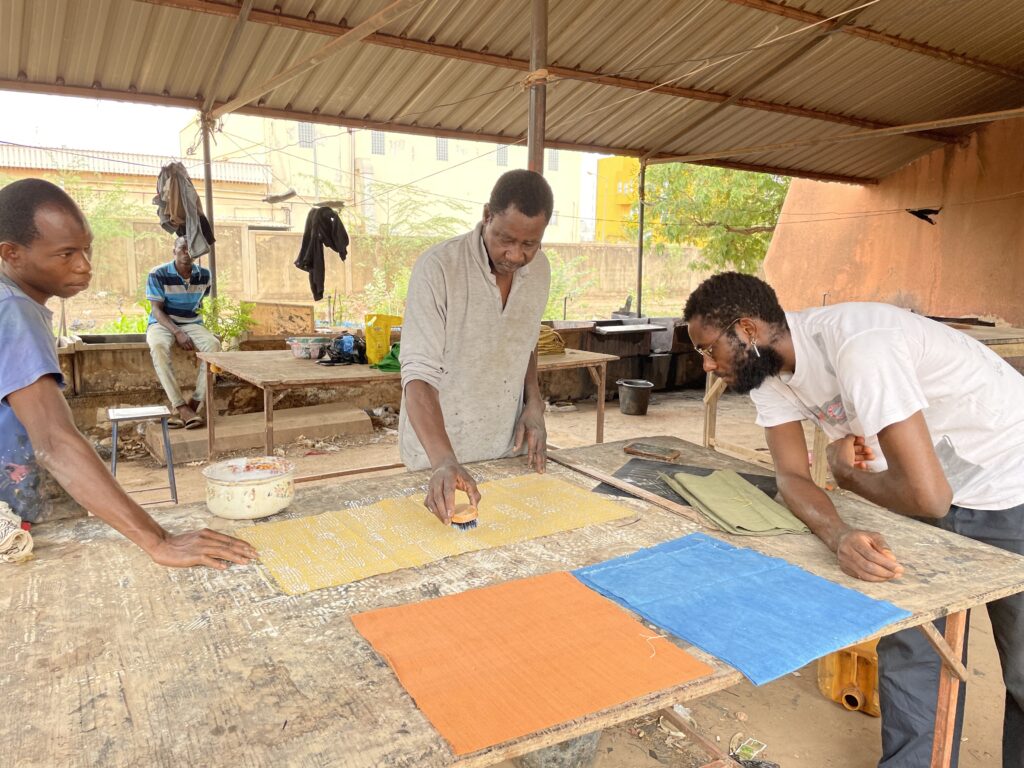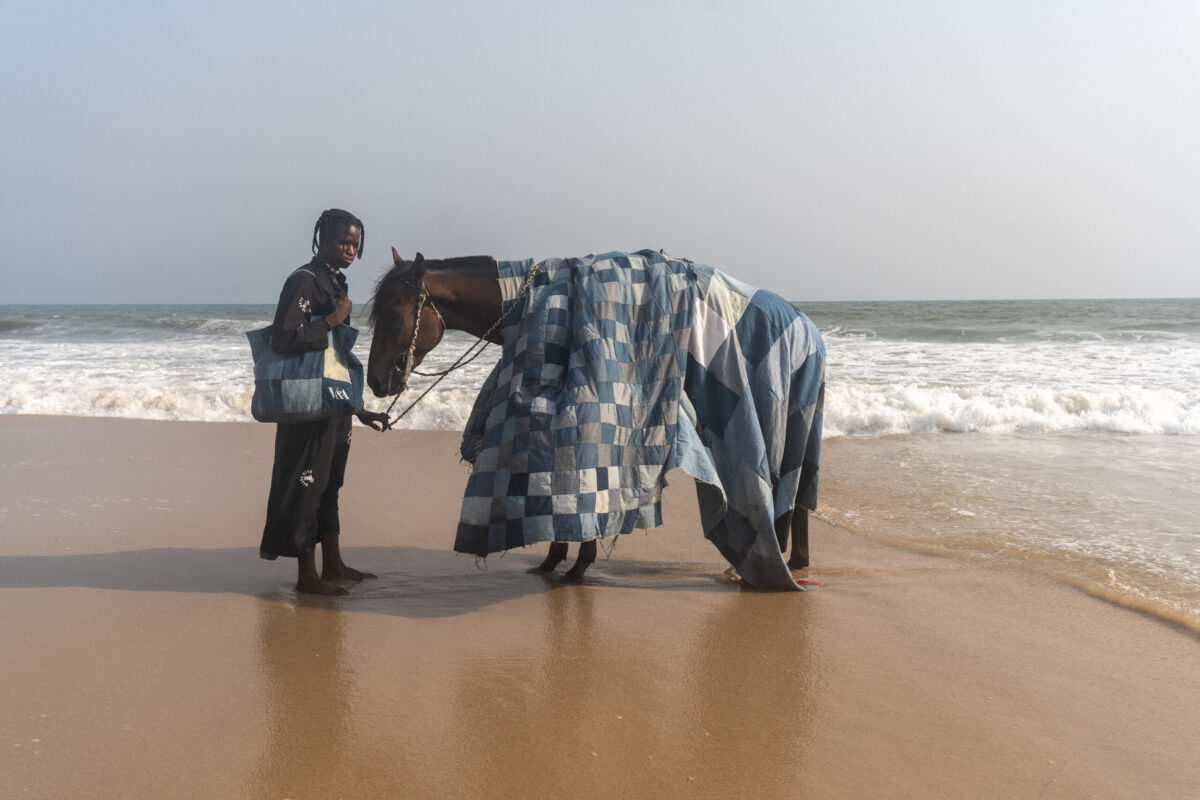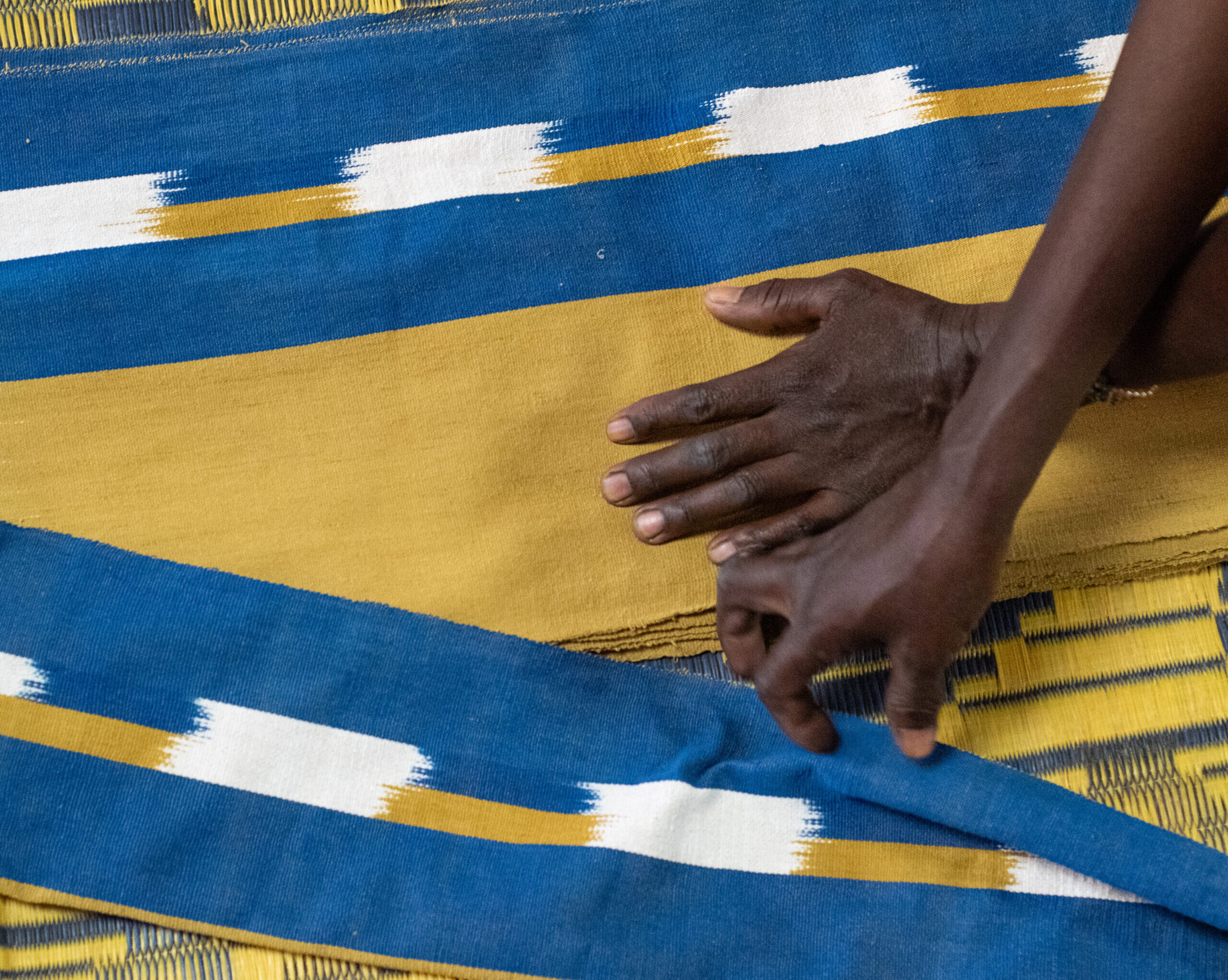Get to know Roundabout, the gatekeeper-free knowledge source on sustainability and circularity
WORDS Helen Jennings
Zara Odu is uniting Africa’s sustainability visionaries with Roundabout. The digital network offers a space where this growing community can share insights and resources, spark ideas and collaborate. Launched in 2023, it’s already attracted labels such as Post-Imperial, Nkwo, I.AM.ISIGO and Dye Lab and initiatives including Bukomansimbi Organic Tree Farmers Association as well as tech upstarts ADD.apt and Rethread Africa. Conversations have ranged from merino wool felting in South Africa to turning agro waste into fine art. Lagos-based Odu has worked in fashion consultancy for over a decade and now puts her expertise into shaping the industry’s next chapter.
What were some of the challenges that inspired you to establish Roundabout?
The global fashion system has taught African designers to turn their back on what is natural to us, which is doing small batch production done in a conscious way. Meanwhile consumers think of sustainable fashion as luxury and therefore unaffordable. So, how do you design in a way that’s relevant and desirable but that still makes sense for people and the environment? I was having all of these conversations behind the scenes and it was time to bring them into the open so we can find solutions together.
How does Roundabout tackle these issues?
It’s about dialogue and discovery. We want to bring passion and process back into focus. Here are some blueprints of brands across Africa doing exciting work, whether with dying methods or sustainable fibres or technology, that prove that innovation is possible here. The platform is fully accessible and is a place that creates community.

How do you hope to turn talk into action?
We have two projects coming to fruition in 2024 so far. We’re being supported by The Or Foundation to host workshops in Lagos and Accra with the UK’s Zero Waste Design Collective that will teach designers, tailors and upcyclers how to cut and sew without waste. And we’re working with Studio Hilo in Berlin to share some open-source technology around turning waste into yarn.
Some argue that we shouldn’t try to change age-old crafts, others that they’ll die out if we don’t. What is your take?
A lot of the indigo dyers in Kano, northern Nigeria, are now using synthetic dye from China rather than real indigo and the aso oke weavers are using polyester rather than silk, so that’s a problem. For me, innovation is using the natural resources we have to create new crafting opportunities. The raw materials and skills are here, so our artisanship can be elevated and redefined through processes that are cleaner, safer and scalable.
“Roundabout is dialogue and discovery. We want to bring passion and process back into focus”
The Global North produces a carbon footprint 100 times larger than the Global South – why should Africans care about western notions of sustainability?
As Africans, we are naturally more sustainable – our processes are more meticulous and what’s produced is more beautiful – but that is not enough because even though we might not have caused these environmental problems, they’ve still tricked down to us. So, let’s go back to the source to find local solutions. We all have a part to play in making change.
What does success look like for Roundabout in future?
We want to continue to educate and to connect with other organisations in a tangible way – more workshops, more opportunities to show and tell. And we want to encourage everyone to share their numbers so we can collect the data we need to encourage investment in the sector. God-willing, we’ll get there through relationship building, collaborations and funding. And I’m excited because we’re well on our way.
Zara Odu verbindet mit „Roundabout“ eine neue Generation nachhaltiger Denkerinnen und Macherinnen aus ganz Afrika.
„Roundabout“ ist ein digitales Netzwerk für Austausch, Zusammenarbeit und neue Impulse im Bereich nachhaltiger Mode. Seit dem Start 2023 bringt die Plattform Labels wie Post-Imperial, Nkwo, I.AM.ISIGO oder Dye Lab mit Initiativen wie der Bukomansimbi Organic Tree Farmers Association sowie Startups wie ADD.apt und Rethread Africa zusammen. Die Themen reichen von Merinofilz in Südafrika bis zur Verwandlung von Agrarabfällen in Kunst.
Zara Odu, die Gründerin aus Lagos, ist seit über zehn Jahren in der Modeberatung tätig. Heute nutzt sie ihre Erfahrung, um der Branche neue Wege aufzuzeigen – lokal verankert, kollaborativ und zukunftsorientiert.
Was waren die Herausforderungen, die dich dazu bewegt haben, Roundabout zu gründen?
Das globale Modesystem hat viele afrikanische Designerinnen dazu gebracht, sich von tief verwurzelten Traditionen abzuwenden: Kleinserien, handwerkliche Herstellung und verantwortungsbewusster Umgang mit Mensch und Umwelt. Gleichzeitig wird nachhaltige Mode von vielen Konsumentinnen als Luxus wahrgenommen – und somit als unbezahlbar. Wie können wir also Designs schaffen, die sowohl begehrenswert als auch relevant sind, dabei aber ökologisch und ökonomisch sinnvoll bleiben? Diese wichtigen Gespräche fanden bislang meist im Verborgenen statt. Es war Zeit, sie sichtbar zu machen und gemeinsam nach Lösungen zu suchen.
Wie geht Roundabout diese Themen konkret an?
Es geht uns um Austausch und neue Erkenntnisse. Wir möchten die Leidenschaft für Handwerk und Herstellungsprozesse wieder in den Fokus rücken. Auf unserer Plattform präsentieren wir afrikanische Labels, die mit innovativen Färbetechniken, nachhaltigen Materialien oder modernen Technologien arbeiten – und so beweisen, dass echte Innovation auch hier zuhause ist. Roundabout ist offen für alle und fördert eine lebendige Gemeinschaft.
Wie wird aus Austausch konkretes Handeln?
Es sind zwei Projekte in Planung. Mit Unterstützung der Or Foundation veranstalten wir Workshops in Lagos und Accra – gemeinsam mit dem britischen Zero Waste Design Collective. Dort lernen Designerinnen, Schneiderinnen und Upcycler*innen, wie man Kleidung ganz ohne Schnittabfall entwirft und näht. Außerdem kooperieren wir mit Studio Hilo aus Berlin, um Open-Source-Technologie zur Garnproduktion aus Textilabfällen weiterzugeben.
Manche sagen: Traditionelles Handwerk sollte nicht verändert werden – andere meinen, ohne Veränderung stirbt es aus. Was denkst du?
In Kano, im Norden Nigerias, nutzen viele Färber*innen mittlerweile synthetische Farben aus China statt echten Indigo. Und die Aso-Oke-Webereien greifen zu Polyester statt Seide – das ist ein Problem. Für mich heißt Innovation, mit den vorhandenen Ressourcen neue Möglichkeiten im Handwerk zu schaffen. Das Know-how ist da, die Materialien auch. Es geht darum, unser Kunsthandwerk mit sauberen, sicheren und skalierbaren Methoden weiterzuentwickeln.
Der Globale Norden produziert 100-mal mehr CO₂-Emissionen als der Globale Süden. Warum sollte Afrika sich also überhaupt mit „nachhaltiger Mode“ beschäftigen?
Wir in Afrika sind per se nachhaltiger – unsere Prozesse sind oft sorgfältiger, und das, was wir herstellen, ist langlebiger und schöner. Aber das allein reicht nicht. Denn auch wenn wir diese Probleme nicht verursacht haben, spüren wir ihre Folgen. Deshalb: Zurück zu den Wurzeln, zu lokalen Lösungen. Jede*r von uns hat eine Verantwortung, zur Veränderung beizutragen.
Was bedeutet Erfolg für Roundabout künftig?
Wir setzen auf Weiterbildung und nachhaltige Partnerschaften mit anderen Organisationen – durch Workshops, Austauschformate und mehr Sichtbarkeit. Außerdem möchten wir die Community ermutigen, ihre Daten zu teilen, denn nur so können wir das Potenzial der Branche sichtbar machen und Investoren gewinnen. Mit starken Netzwerken, Zusammenarbeit und Förderungen werden wir unser Ziel erreichen. Ich bin zuversichtlich: Wir sind auf einem vielversprechenden Weg.


